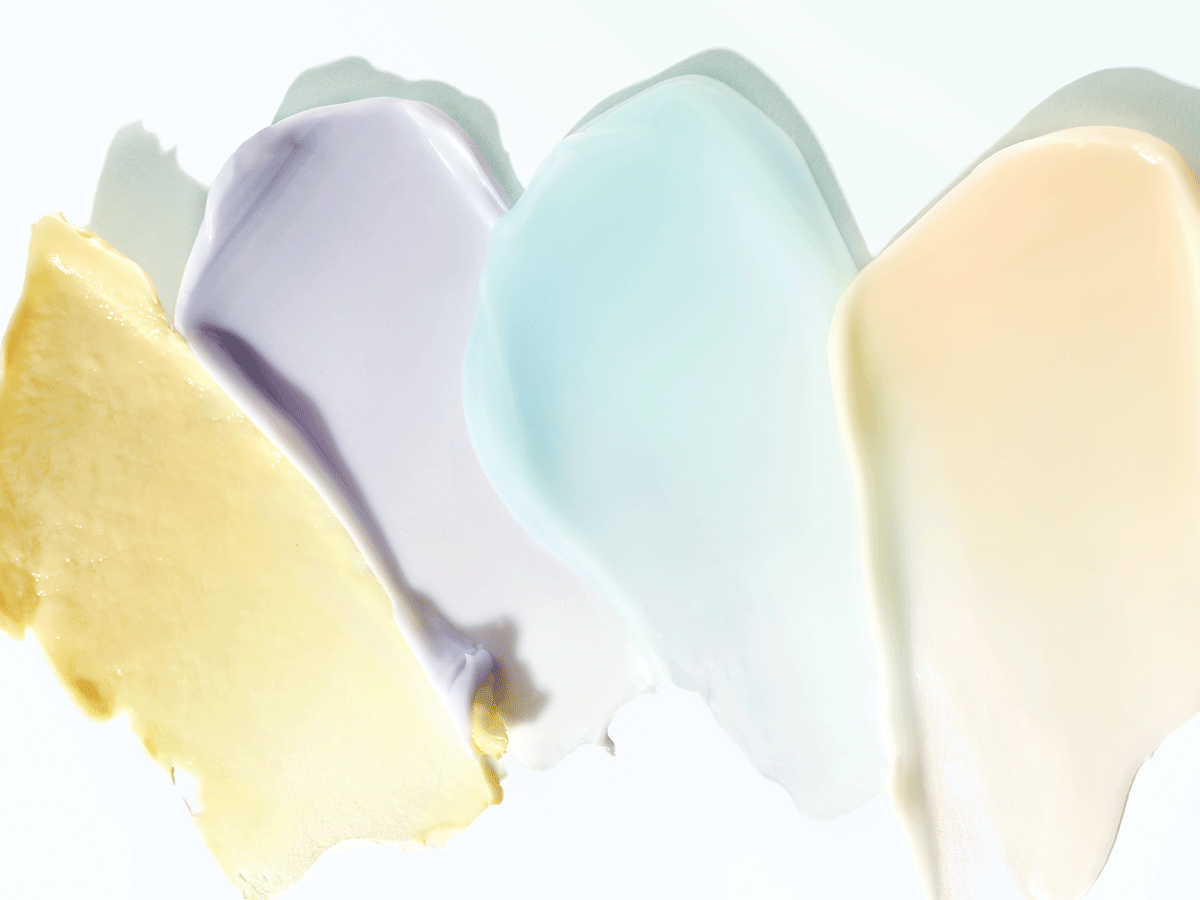
Secrets to Glowing, Healthy Skin
Getting fit can be hard. So much sweat. So many leggings that don’t really fit anymore. So much schlepping of the gym bag. But getting healthy skin – the brighter, smoother, dewier and tauter skin of your dreams – can be infinitely more relaxing. You just need to pick products with the right ingredients, sit back and let science work its magic. Best news? These products work for all demographics – from Gen Y to boomer and beyond.
We spoke to Dr. Julia Carroll, a dermatologist at Compass Dermatology in Toronto, and Ellis Holevas, a senior clinical educator for AlumierMD, about the best ways to give your skin a workout – no leggings involved! Here’s what you need to know to get glowing, healthy skin.
(Also, learn if you’re washing your face wrong.)
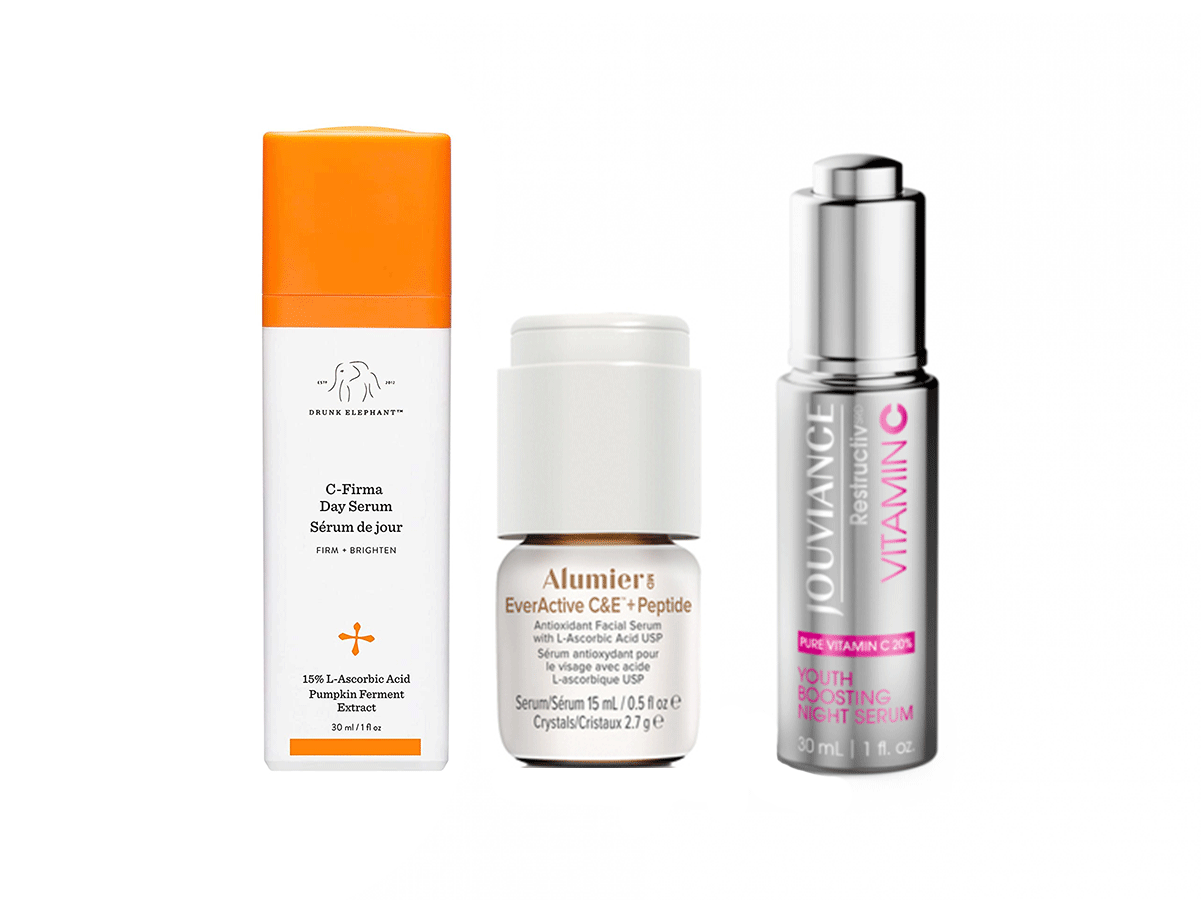
Your Goal: Brighter Skin
While you may not be after that ultra-trendy sparkle that makes your face look like a disco ball, nobody wants dull, lackluster skin either. No matter what your skin tone is, glow looks good. Brighter skin doesn’t mean whiter skin, says Dr. Carroll. It means that skin, regardless of colour, is clear and even.
The hallmark of said bright skin? An absence of hyperpigmentation – a blanket term for dark spots that includes acne scars, sun spots and melasma. Melasma is skin discoloration that is commonly triggered by the hormonal shifts of pregnancy, hormone therapy or even birth control pills. There are different ways to treat these types of hyperpigmentation, including professional interventions like lasers (for which a consultation with a dermatologist is a must). The good news is that one powerhouse ingredient is your go-to for an at-home skincare regimen. Vitamin C is an antioxidant that targets all types of hyperpigmentation and gives those lucky faces that don’t have any spots extra radiance, too.
Holevas says vitamin C should be your first step every morning after cleansing, ideally in a serum format to better penetrate your skin. She recommends looking for one that contains L-ascorbic acid – the most bioavailable and effective form of vitamin C – and awards bonus points for products that have other brightening agents, such as licorice root, arbutin, Kakadu plum and white shiitake mushroom.
But most importantly, she says, always – always! – use a broad-spectrum sunscreen all year long, even if it’s cloudy, or all your efforts will be for naught. “Sun protection is an insurance policy,” she says. “If you’re using all those beautiful active ingredients but not wearing sunscreen, you’re not protecting your investment.”
Try:
Drunk Elephant C-Firma Vitamin C Day Serum, $105, sephora.com
AlumierMD Everactive C&E + Peptide, $179, alumiermd.ca
Jouviance Vitamin C Youth Boosting Night Serum, $65, shoppersdrugmart.ca
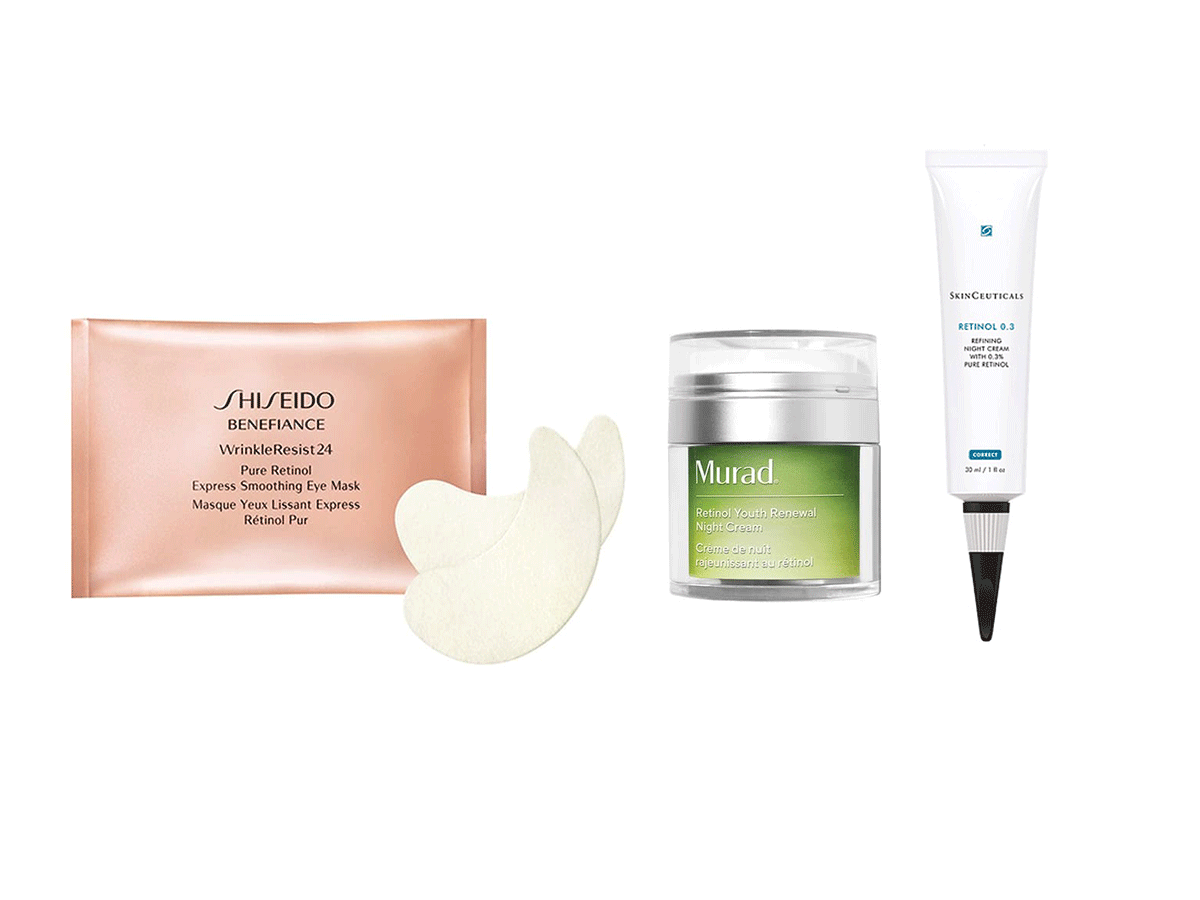
Your Goal: Smoother Skin
“Smoothness is about not having imperfections in the texture of your skin, including having fewer wrinkles and smaller pores,” says Dr. Carroll. (Serious acne and scars obviously affect the appearance of smoothness, but how you treat them is a whole other story.)
To help create the even skin of your dreams, Holevas recommends an alpha hydroxy acid (AHA)-based liquid exfoliant, usually in a toner, followed by a retinol serum or cream in the evening. Retinol, a vitamin A derivative, is a skincare all-star that helps improve the look of lines and wrinkles by stimulating cell turnover and collagen production. It can also improve acne by reducing oiliness and unclogging pores. The downside is that retinol can be irritating, especially when you’re using it for the first time.
“We always tell patients to go ‘low and slow’ when introducing retinol,” says Holevas. She recommends using a small amount, about twice a week, without exfoliating first and working up to using retinol every other night with the AHA appetizer as your skin gets used to the regimen. (Hot tip: If your skin is too sensitive for retinol, Dr. Carroll suggests trying the latest buzzy beauty ingredient, bakuchiol. It’s less potent but less irritating, and it also juices up cell turnover.)
Try:
Shiseido Benefiance Wrinkleresist24 Pure Retinol Express Smoothing Eye Mask, $86, sephora.com
Murad Retinol Youth Renewal Night Cream, $105, ulta.com
Skinceuticals Retinol 0.3, $75, geebeauty.com
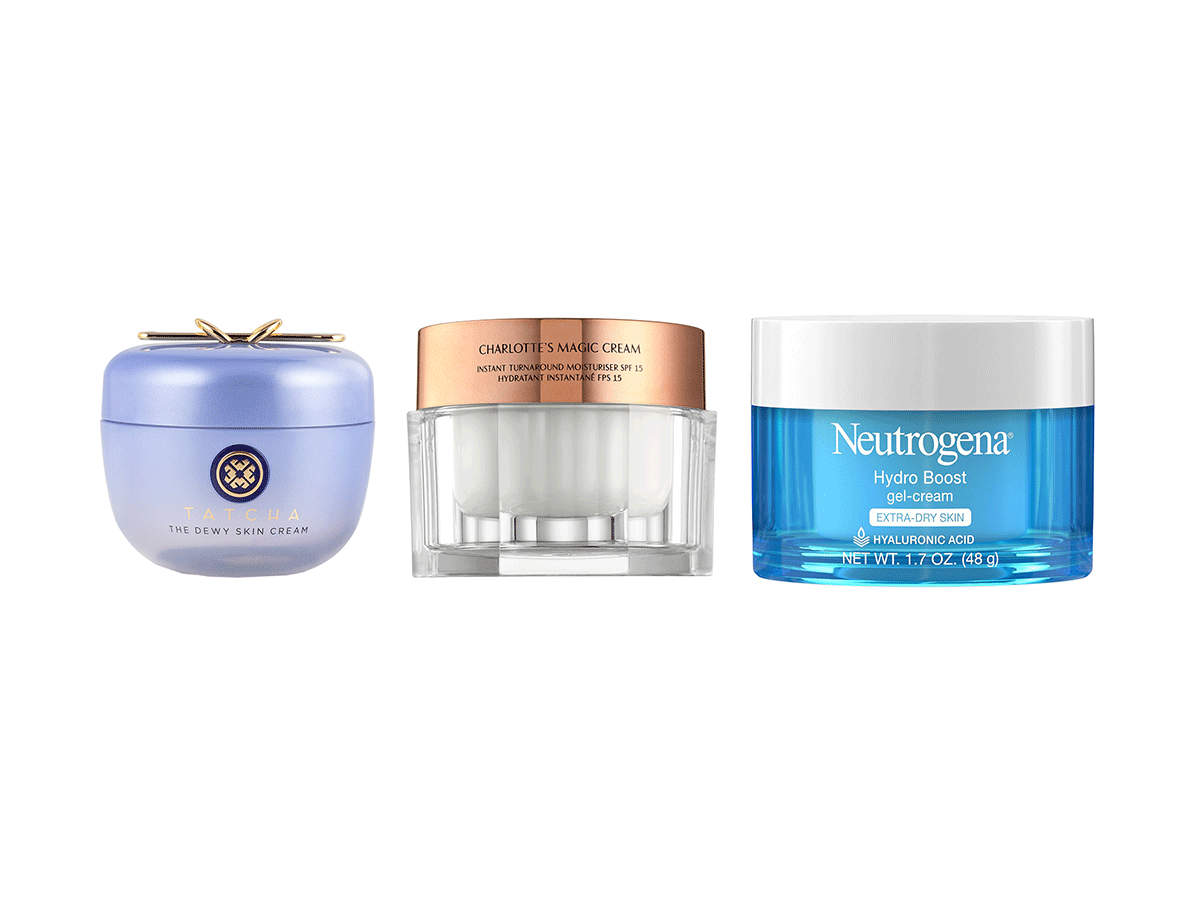
Your Goal: Dewier Skin
“Dewy skin is all about moisturizing,” says Dr. Carroll, who recommends layering products (serum, moisturizer and even makeup) that contain hyaluronic acid (HA). HA is a humectant, meaning that it both attracts and holds water – each molecule of HA can actually hold up to 1,000 times its weight in water, which is a pretty impressive bench press. The amount of HA that occurs naturally in our bodies decreases as we get older, which means our skin is less firm and doesn’t retain moisture as easily as its younger version. (Here are the best moisturizers for every skin type.)
You can use HA as part of your daily or nightly routine. If you’re using it at night, Holevas recommends applying it after retinol. If you’re using it during the day, put it on after vitamin C and before sunscreen. Both experts point out that you’ll want to maintain your skin’s moisture barrier to reduce water loss. The moisture barrier is the outermost layer of your skin, and it helps keep irritants out and water and electrolytes in. Keeping it healthy means making sure to first treat any underlying medical conditions, such as psoriasis, and adding moisturizers with barrier-boosting niacinamides and ceramides to your routine, particularly in the harsh winter months.
Try:
Tatcha Dewy Skin Cream, $89, sephora.com
Charlotte Tilbury Charlotte’s Magic Cream, $165, sephora.com
Neutrogena Hydro Boost Gel Cream, $24, walmart.ca
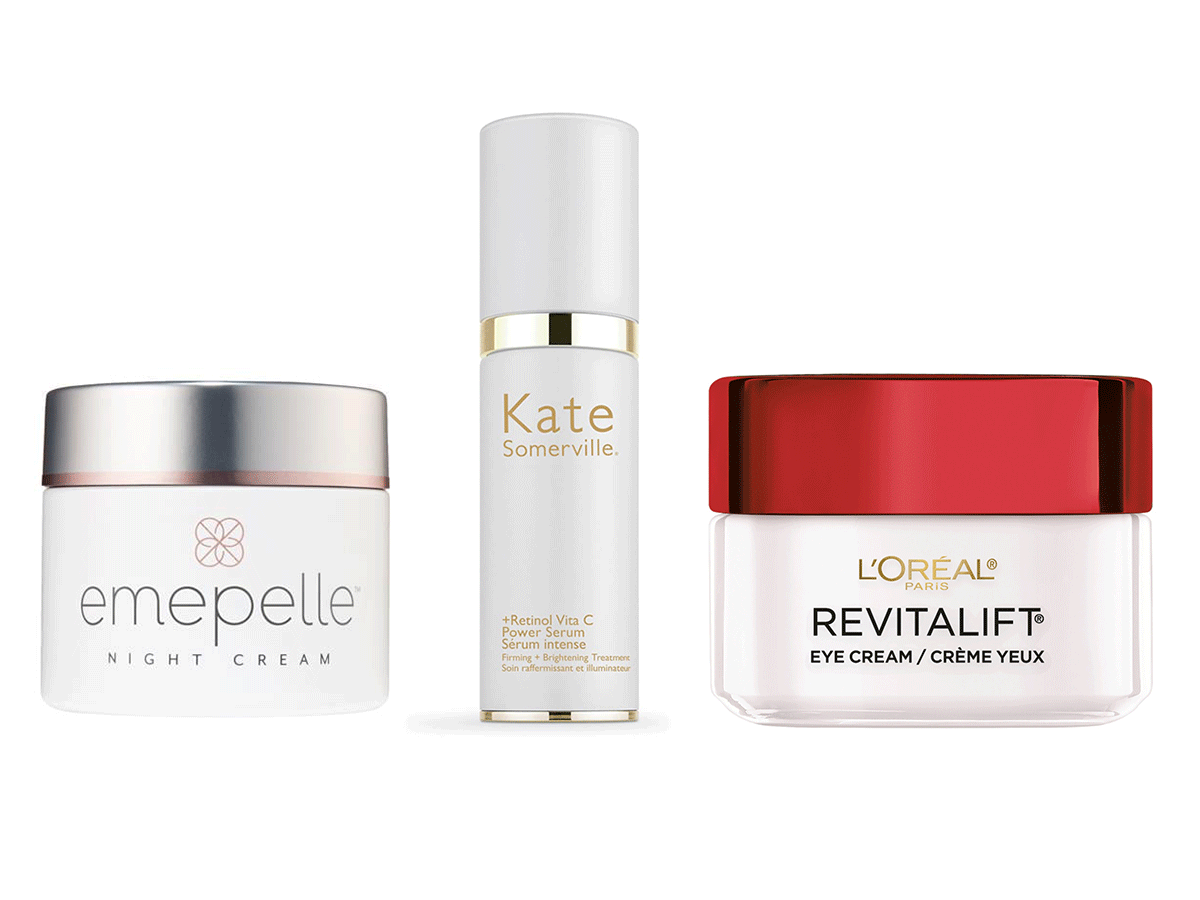
Your Goal: Tauter Skin
Firm skin,” says Dr. Carroll, “is bouncy skin that recovers from trauma quickly.” In this context, “trauma” can refer to repeated facial expressions that etch lines into your skin (we see you, frown lines!) or skin that doesn’t rebound rapidly from things that make physical impressions on it, like your pillow. “Every day, I hear patients complain that their sleep lines last longer than before,” she says.
Collagen – a structural protein – is what gives skin the spring in its step. It’s supported by ingredients like vitamin C, retinol and hyaluronic acid. You may have also seen collagen vitamins or powders that promise to give you glossy hair, strong nails and baby-soft skin, but Dr. Carroll can’t recommend them, since she says there’s not enough research on them yet.
But one thing Dr. Carroll is excited about is a newish ingredient called methyl estradiol propanoate (MEP). Collagen is broken down by expo-sure to UV damage, pollution and smoking, and you produce less of it as you age. Estrogen stimulates collagen production, so it’s no surprise that there is a precipitous 30 percent loss of collagen during the first five years after menopause, when your estrogen levels drop. Early studies of MEP – currently only available in a product called Emepelle – show that it facilitates your body’s ability to create more estrogen on its own.
Try:
Emepelle Night Cream, $195, emepelle.com
Kate Somerville + Retinol Vita C Power Serum, $129, nordstrom.com
L’Oreal Revitalift Anti-Aging Eye Cream, $39, walmart.ca
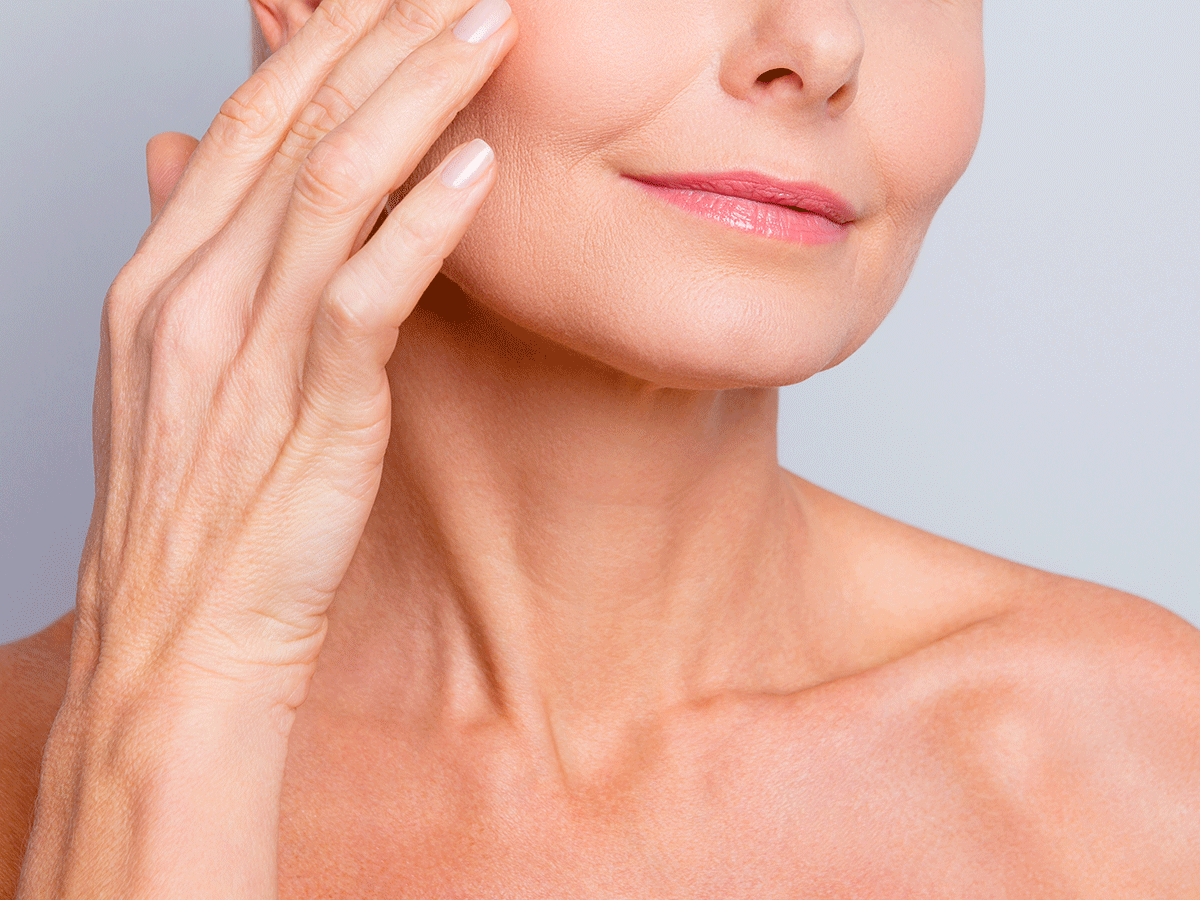
Face or Fanny?
For years, women have been told they need to choose between a tight tush and a young-looking face. But, no more! A recent study from McMaster University in Hamilton, Ont. found that women over age 65 who worked out a minimum of two hours a week for three months had the skin composition of women 20 to 30 years younger. It seems that sweating it out leads to pumping myokines – a group of proteins secreted by muscle cells and diffused throughout the body. The result: younger-looking complexions. Our recommendation? Develop a plan with a one-two punch: Stay active and practise self-care.
Next, learn the best ways to do self-care in quarantine.
